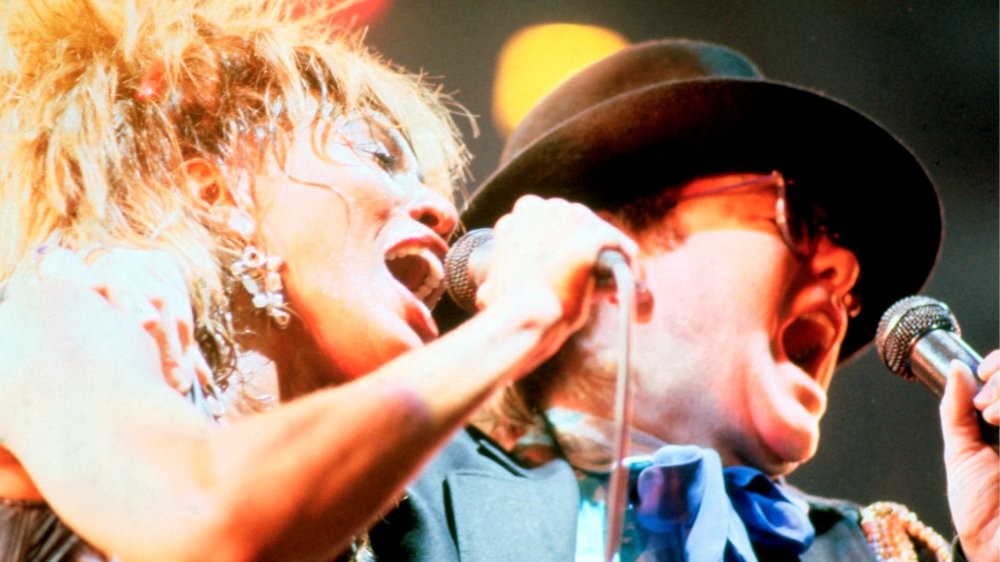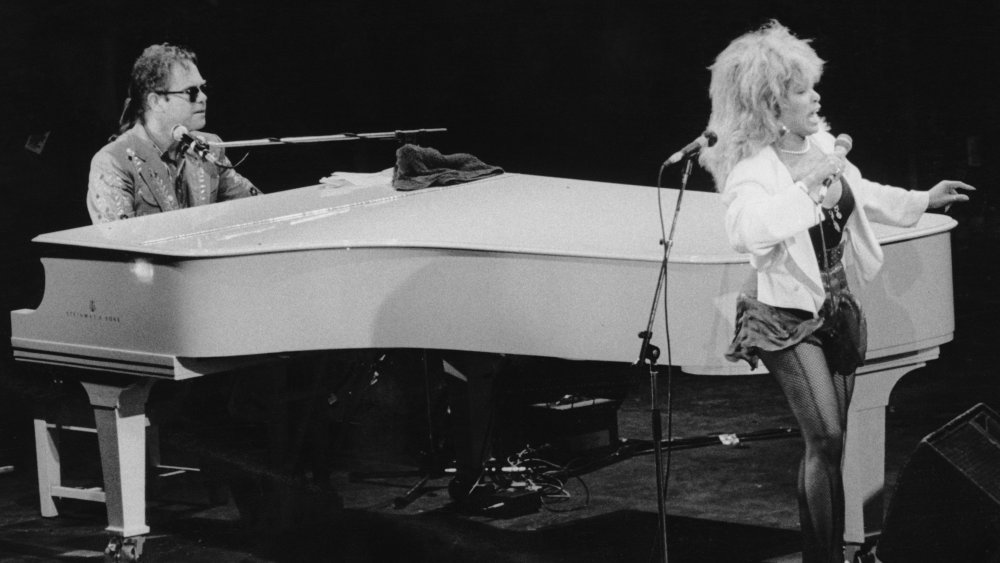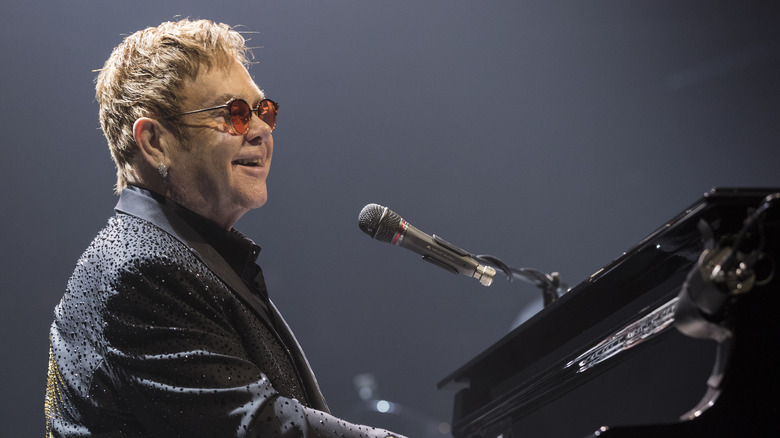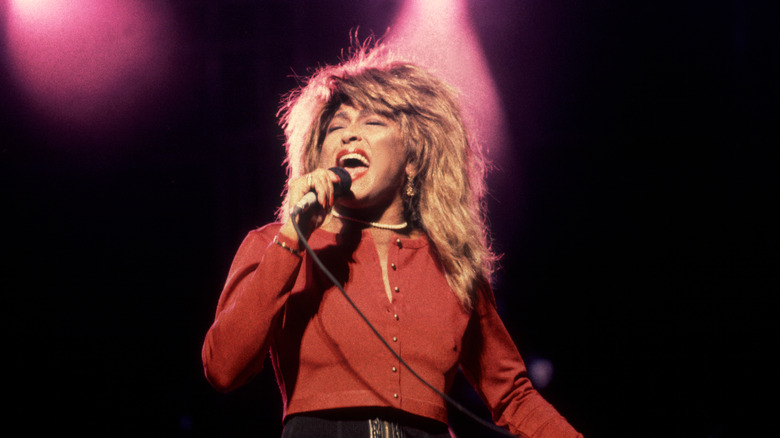The Truth About Tina Turner And Elton John's Feud
May has seen the release of two legendary songs: Elton John's 1994 "Lion King" classic, "Can You Feel the Love Tonight," and Tina Turner's iconic 1984 single, "What's Love Got to Do with It." When not even their songs could get along, what hope was there for John and Turner to make beautiful music together in 1997? There was probably a better chance of Simba and Scar living peacefully together. But even their fight to the death might not have been as catty as John made things sound between him and Turner.
In an excerpt from his humbly titled autobiography, "Me," published by the Daily Mail, John recounts how plans for him and Turner to tour together in '97 began as "a nice idea" but "quickly turned into a disaster." Granted, this is only John's side of a story about someone he ended up actively disliking. That doesn't mean it isn't a faithful retelling of events, but it's impossible to tell one way or the other.
The Rocket Man's red glare
Based on his account, Elton John didn't have to guess why they call it the blues because Tina Turner called to give him the blues herself. "She didn't like my hair, she didn't like the colour of my piano, and she didn't like my clothes," he recalls in his book. She supposedly told him, "You wear too much Versace, and it makes you look fat." She allegedly clashed with his band, too, refusing to address the members by name. When they tried to rehearse "Proud Mary," proud Tina kept on burning them with complaints about how much they sucked at playing the song — or rather, how much John sucked. So he told her where to stick her song and stormed off.
"Sorry" seems to be the hardest word for John, but he apparently has a much easier time with a different S-word, writing, "I've thrown plenty of tantrums in my time, but there are limits: there's an unspoken rule that musicians don't treat their fellow musicians like s***." In 1999, they tried again to rehearse together for VH1's Divas Live '99, per the New York Post. But love would once more have nothing to do with it. A stagehand claimed Turner stopped the song to criticize John's playing and the latter snapped back: "Don't tell me how to play f****** piano and I won't tell you how to f****** sing!'" He could probably feel the loathing that night.
Turner had issues with John's improvisation
Any Elton John fan knows that he's a master of improvisation. Heck, he famously improvised a song using Richard E. Grant's oven manual during the 1997 special, "An Audience With Elton John." But when he was trying to work with Tina Turner, she wasn't having it. "I went to her dressing-room and apologised," he wrote in his autobiography. "She told me that the problem was that I was improvising too much — adding in little fills and runs on the piano."
According to John, this was when he realized that the pair — at least artistically — weren't compatible. "That's how I've always performed — it's part of what I love about playing live," he wrote. "But Tina didn't think that way. Everything had to be exactly the same every time; it was all rehearsed down to the slightest movement. That made it obvious the tour wasn't going to work."
John suggested Turner's reaction might have been 'insecurity'
Elton John also suggested that Tina Turner's treatment of him might have had less to do with him and more to do with her own negative experiences at the hands of others. "Maybe it was insecurity on her part," he wrote in his autobiography. "She'd been treated appallingly earlier in her career, suffered years and years of being ripped off, beaten up and pushed around. Maybe that had an effect on how she behaved towards people."
In addition to her abusive marriage with Ike Turner, Tina Turner faced pushback in America for being a Black artist who wanted to break into the traditionally "white" scene of rock 'n' roll. As Tanisha Ford, a history professor at CUNY's Graduate Center, told PBS News Hour, the "mainstream" music industry "racialized" rock 'n' roll as "'white' music" — despite the fact that it was founded on elements of Black music and tradition.
Though John and Tina Turner didn't work in the studio, the pair still managed to salvage a friendship. "We made up later," John wrote. "She came for dinner and left a big lipstick kiss in the visitors' book."



